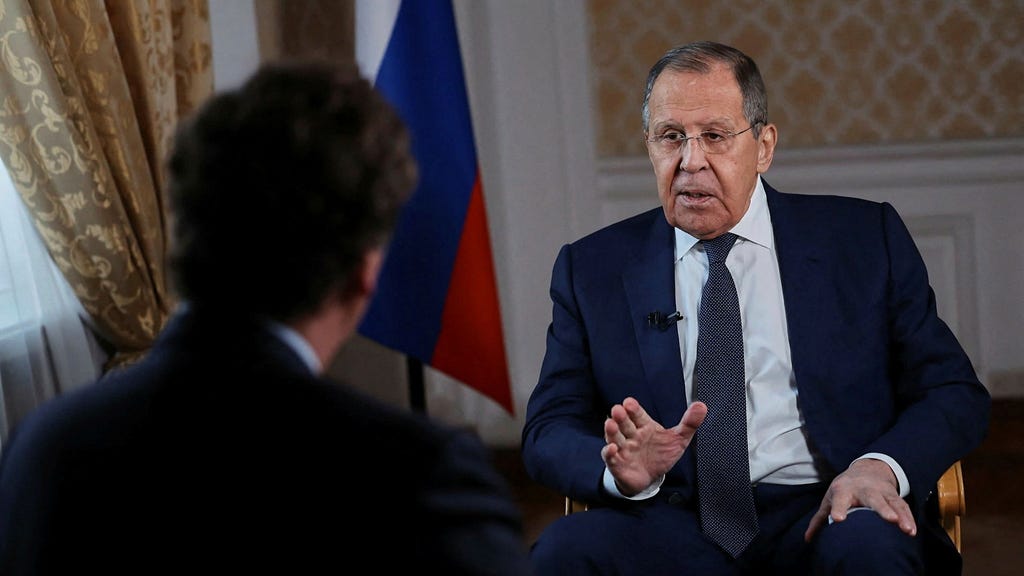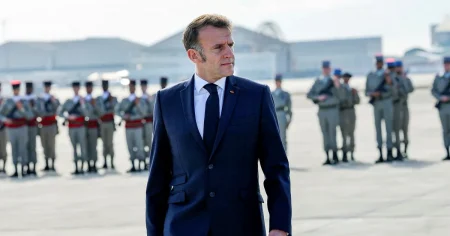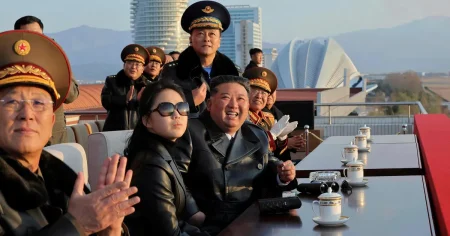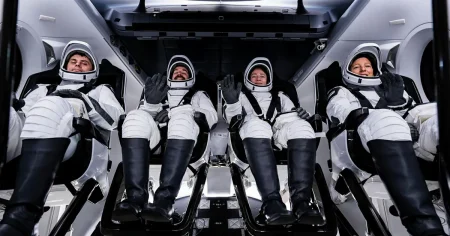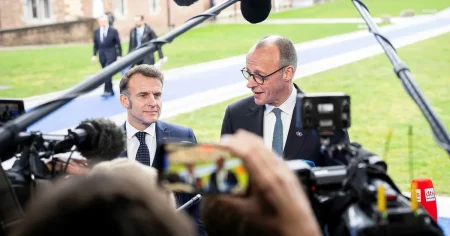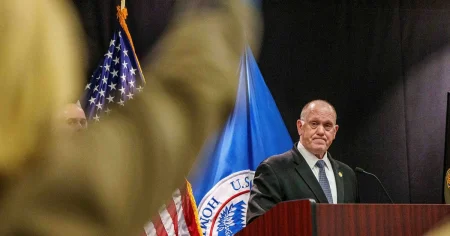Russia’s International PR Offensive Amidst Shifting Geopolitical Landscape
Russia, under the stewardship of Foreign Minister Sergey Lavrov, has embarked on a concerted international public relations campaign, seemingly timed to coincide with the anticipated return of Donald Trump to the US presidency. This push comes amidst heightened tensions and a backdrop of the ongoing conflict in Ukraine, which has significantly strained relations between Russia and the West. Lavrov’s recent activities represent a multi-pronged approach, targeting both international diplomatic circles and the American public, with a clear aim to reshape the narrative surrounding the conflict and potentially influence future US foreign policy towards Ukraine.
Lavrov’s recent visit to Malta for a meeting with the Organization for Security and Co-operation in Europe (OSCE) marked his first visit to an EU country since Russia’s full-scale invasion of Ukraine nearly three years ago. While the visit provided a platform for Russia to present its perspective on the conflict, it was met with strong disapproval. Lavrov’s assertion that the West had "reincarnated the Cold War" and that Russia’s invasion of Ukraine was a necessary measure was promptly countered by a walkout staged by the foreign ministers of Ukraine, Poland, and the Czech Republic. This demonstration of dissent underscored the deep divisions that persist between Russia and much of the international community regarding the legitimacy and justification of Russia’s actions in Ukraine. Even the US Secretary of State Antony Blinken, while remaining in the meeting initially, publicly accused Lavrov of spreading disinformation, leading to a reciprocal departure by the Russian foreign minister. The Malta meeting ultimately served to highlight the ongoing diplomatic stalemate and deep mistrust between the involved parties.
Parallel to the diplomatic efforts, Russia has also engaged in a strategically targeted media campaign aimed at influencing public opinion within the United States. This campaign leverages the reach and influence of Tucker Carlson, a former Fox News host with a considerable following, particularly among Republican voters. Carlson, known for his often controversial views and alignment with Trump’s political ideology, has conducted several interviews with high-ranking Russian officials, including President Vladimir Putin and Foreign Minister Lavrov. These interviews, widely disseminated through platforms like X (formerly Twitter), provide a platform for Russia to disseminate its narrative regarding the conflict directly to a substantial American audience. The content of these interviews often echoes Kremlin talking points, portraying Russia as the victim of Western aggression and placing the blame for the war squarely on the US and NATO.
The timing and target audience of this media outreach suggest a calculated attempt to influence the Republican base and, by extension, Donald Trump’s potential future policy decisions regarding Ukraine. By framing the narrative in a way that resonates with Trump’s previously expressed skepticism about US involvement in foreign conflicts and his admiration for Putin, Russia may be hoping to sway public opinion against continued US aid to Ukraine. This approach capitalizes on pre-existing political divisions within the United States and seeks to exploit them to Russia’s advantage. The interviews themselves often feature lengthy monologues from Russian officials, allowing them to present their version of events largely unchallenged, thereby reinforcing pre-existing biases within segments of the American public.
The content of Lavrov’s pronouncements offers further insights into Russia’s strategic objectives. In his interview with Tucker Carlson, Lavrov outlined Russia’s conditions for ending the war in Ukraine. These include a neutral status for Ukraine, implicitly precluding membership in NATO, and the retention of Ukrainian territories currently occupied by Russian forces. While Russia offers vague assurances of collective security guarantees for Ukraine, the credibility of such guarantees is highly questionable. These conditions essentially represent a demand for Ukrainian capitulation and formal recognition of Russia’s territorial gains, a stance unlikely to be accepted by either Ukraine or its Western allies.
The irony of Russia’s offer of security guarantees is further underscored by the historical context. Lavrov’s statements coincide with the 30th anniversary of the Budapest Memorandum, a 1994 agreement in which Russia, along with the US and the UK, pledged to respect Ukraine’s territorial integrity and political independence in exchange for Ukraine relinquishing its Soviet-era nuclear weapons. Russia’s subsequent actions, including the annexation of Crimea in 2014 and the full-scale invasion in 2022, represent a blatant violation of this agreement. This historical context highlights the inherent untrustworthiness of any security guarantees offered by Russia, a point conveniently omitted by Carlson in his interview.
Russia’s public relations offensive represents a sophisticated attempt to manipulate public opinion and influence the geopolitical landscape. By targeting both international diplomatic forums and the American public, Russia seeks to advance its narrative, undermine support for Ukraine, and potentially pave the way for a negotiated settlement on terms favorable to Moscow. The success of this strategy remains to be seen and will depend on several factors, including the response of the international community, the resilience of Ukrainian resistance, and the future direction of US foreign policy.





